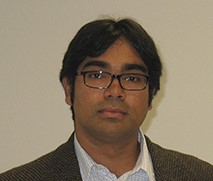Breaking parliamentary list system vital to improve management of oil
Professor of Economics at the University of South Florida, Dr. Tarron Khemraj, believes that there are several dynamic changes that need to be made to Guyana’s governance structure if the country is to succeed in its management of oil, to secure maximum benefit for the people. The present system, he opines, promotes disunity.
One of these, Khemraj told Kaieteur Radio, involves promoting independence at the level of Parliament by breaking up the list system, allowing Members of Parliament (MP) to be more dependent on and be voted in by their local constituents instead of party loyalty.
“The list system has to go. You need direct representation of independence, so an independent person doesn’t necessarily need to go and compete in national elections.” Dr. Khemraj said on the radio show, Petroleum 101.
If the Constitution is so reformed, Dr. Khemraj opines, “You can have a talented independent person from Essequibo Coast who is not part of one of the main political forces and can run for election or become a Member of Parliament, represent the locality.”
The present system requires persons desirous of being MPs to join the list of a political party. The major political parties are or are led by parties, which have been around for decades, and tend to secure most of the votes, making it difficult for new, independent parties to break into the system.
While some MPs are selected based on the vote in the regional elections, this accounts for less than a third (20) of the 65 seats of the National Assembly, while the 45 other seats are decided based on the national vote using the “top-up” list.
Dr. Khemraj shared the view that voters may be more willing to “split” their vote, meaning they would vote for a member of one party for the presidency, and an independent or third party candidate as an MP for their constituency. He pointed to the United States, in which a voter may support a Republican as a senator, and a Democrat for the presidency, or vice versa.
He’s of the view that it would be more difficult to be elected to the presidency as a third party candidate early into such reform, but that that could change, a few decades down the line.
The Professor signaled that it might be difficult to bring about such change, seeing as the incumbent party benefits from how the current system allows them to consolidate power.
“So once you are the incumbent, you tend not to call for changes… When the PPP was in power, prior to 2015, the calls for constitutional change were really from the PNCR side, and from other small opposition parties.”
Similarly, he said of the incumbent, “this Burnham constitution is very much loved in the PPP.” “The PPP thinks it can use the document to get its agenda done…”
Independence of thought has similarly been frowned on by the Coalition, which expelled former AFC Member, Charrandass Persaud, from the National Assembly and the party, when he voted in support of a No Confidence Motion on December 21, 2018, laid by the then opposition PPP/C.
Small parties have tried to make inroads with little success. The most successful recent attempt was by the Alliance for Change (AFC). Notably, the AFC is currently led by Khemraj Ramjattan who was pushed out of the People’s Progressive Party Civic (PPP/C) by its leadership after taking divergent positions.
Other leaders in the party had found themselves to have differed with the leadership of the People’s National Congress Reform (PNCR). In the 2006 elections, the party secured six seats, then seven in 2011. For the 2015 election, realizing it couldn’t oust the PPP/C without forming a coalition, AFC joined with the David Granger-led A Partnership for National Unity (APNU).
Former House Speaker, Ralph Ramkarran, shared a similar fate as Ramjattan with the PPP/C leadership. He went on to run as Presidential Candidate for A New and United Guyana (ANUG), which contested the 2020 election.
ANUG could not secure enough seats on its own, but shares a single seat with two other parties, due to a tripartite joinder it formed in the weeks leading up to Election Day.






















